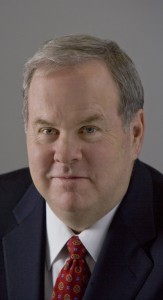It’s about common
The financial panic renewed interest in large
Talk Economic Risk
By Bernie McGinn, President, McGinn Investment Management
The recent Eurozone financial drama raises two urgent questions: Will the European crisis sidetrack the U.S.
economy and wipe out the last 15 months of stock market gains? If so, I want out. The much more interesting question is whether there is an alternative to direct exposure to the European economy. The European meltdown is yet another reminder that we live in an age which dramatically redefines risk.
The 2008 collapse proved that investors lost touch with realistic measures of risk. Over several generations, we went from extreme risk aversion during the Great Depression to an almost complete lack of risk acknowledgment in the past 20 years. What was passed off as financial sophistication and innovation was instead the accumulation of unquantifiable risk.
Two phenomena have been almost constant during my nearly 30 years in the investment business. Investors almost never get compensated for additional risk when they stretch for additional return, and trendy investments ultimately fail their objectives.
The financial services industry has made investing seem like brain surgery, creating massively complex products that rely on scale to exist. The investing public has come to question whether “more complicated” is necessarily better.
It is time that investors and money managers seek out easy-to-understand investments. There is nothing wrong with keeping it simple.
Investing isn’t rocket science. It’s about common sense, staying on top of events, and not lending to those who cannot pay you back. It’s about investing in well-known companies with diversified product lines and access to credit markets. It’s also about companies with the assets to survive the worst of times and the management smarts to prosper in better times.
Investing is getting back to basics. The financial panic renewed interest in large companies with relatively predictable earnings patterns and stable balance sheets. Being old-fashioned is actually more profitable.
Recent history has pushed investors toward less risky ways to invest in high growth foreign markets. There are two ways to participate in these markets. One can get direct exposure to a foreign market through a fund or local securities and assume all the currency, political, and business risks along with large swings in returns. Direct investment has been preferred for the last 15 years.
The second way to invest abroad is in large global companies whose business is to manage exposure, taking the risk out of the hands of individual investors. In this case, big is better and almost always less risky.
Bernard F. McGinn is president and chief investment officer of McGinn Investment Management, based in Old Town Alexandria. He is a frequent guest on CNBC and Fox News Business. www.mcginninvests.com





